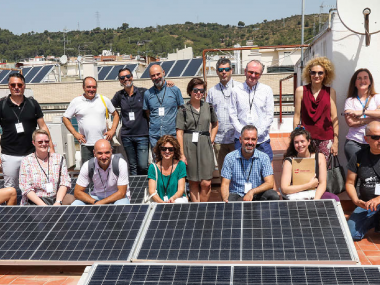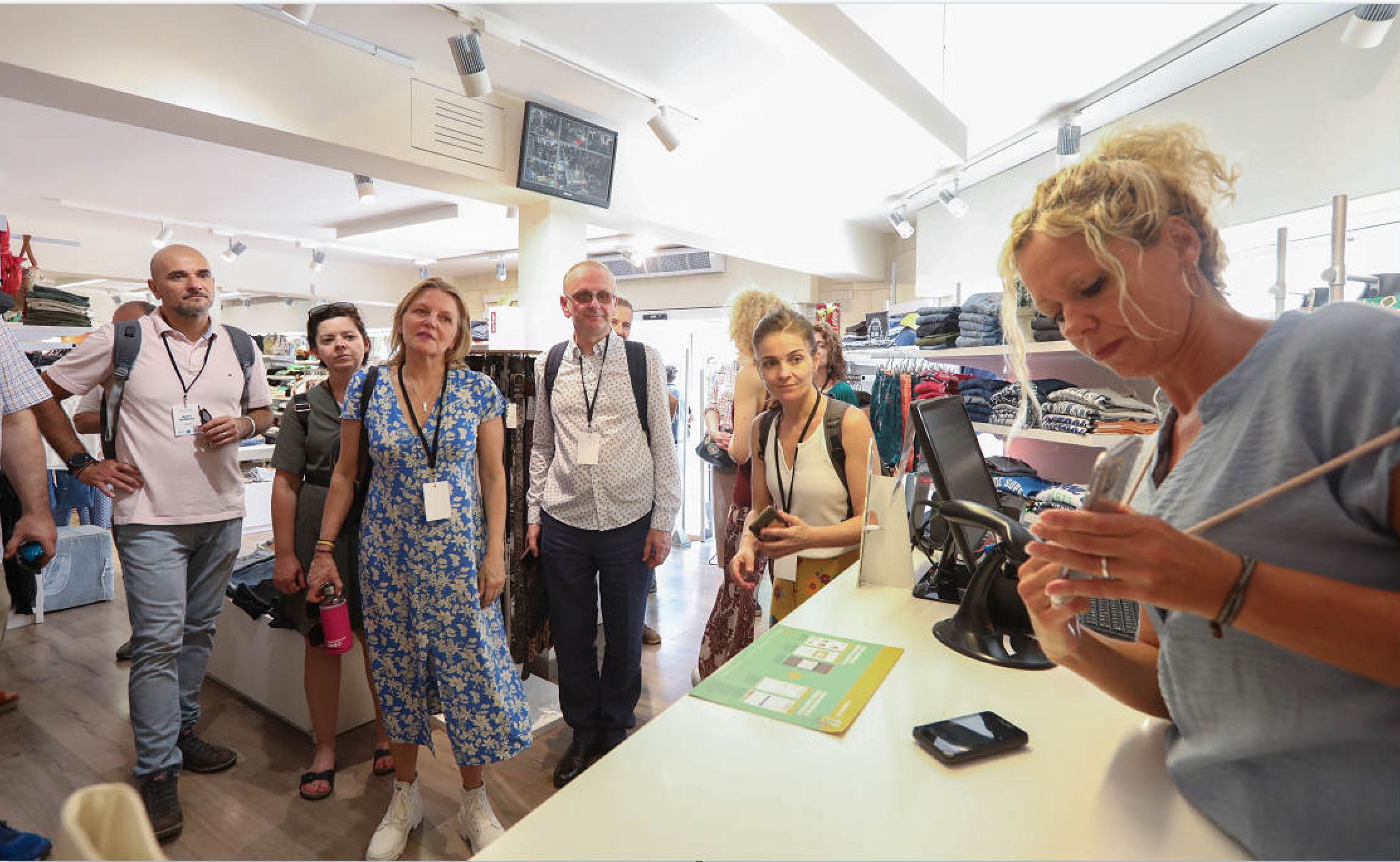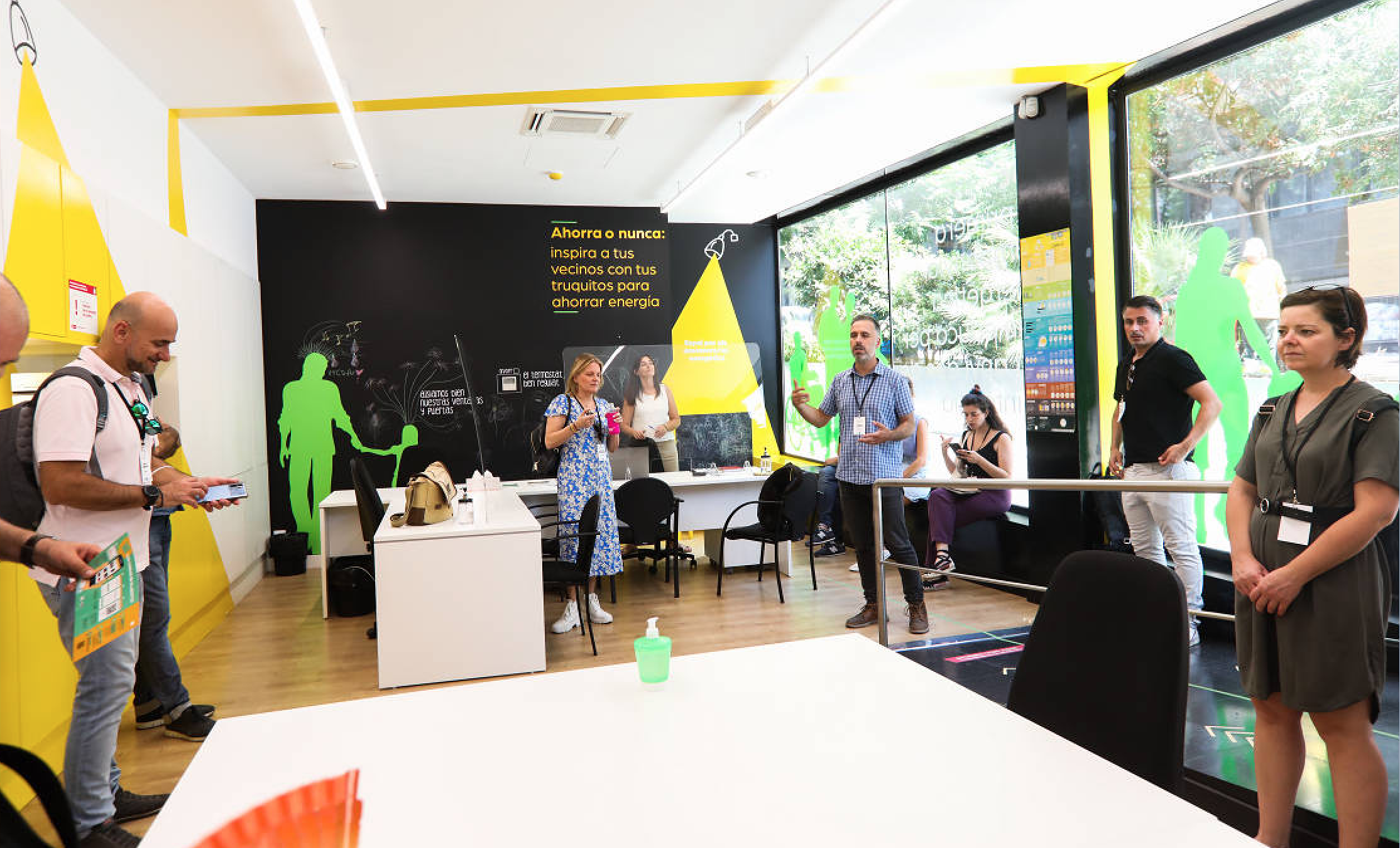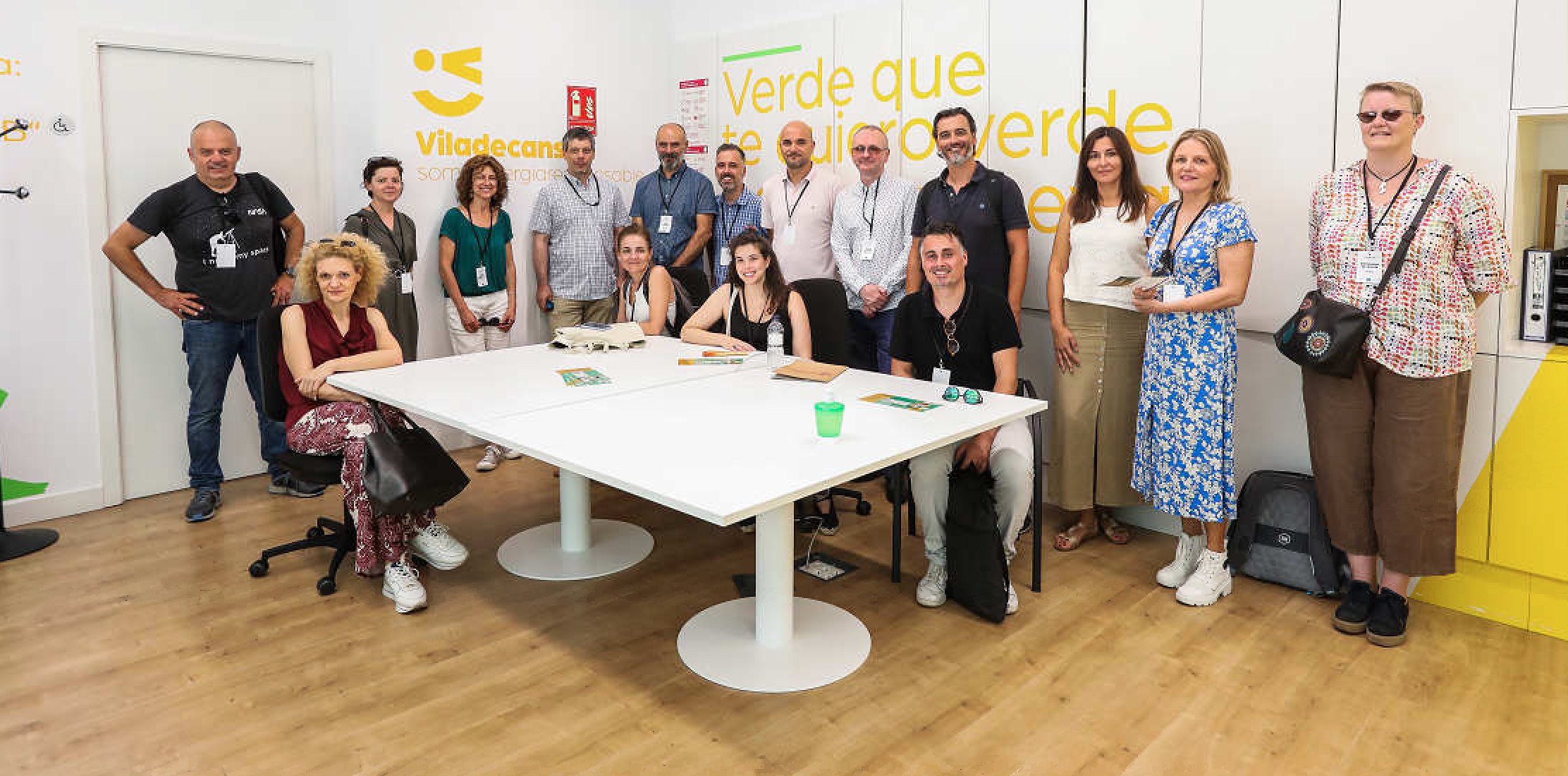Vilawatt live and in person
Edited on
28 July 2022A group of representatives from the Vilawatt-UTM partner cities visited Viladecans, the city leading the project transfer, on 5 and 6 July to see the results of the Vilawatt model of energy transition in situ.

After a year marked by the pandemic and with periodic virtual meetings, this was the first time that the partner cities were able to share a meeting with all the advantages of being in person. The Representatives from Seraing (Belgium), Nagykanizsa (Hungary) and Trikala (Greece) were able to see first-hand the results of the energy refurbishment of the buildings, the success of the local currency and its consumer vouchers, the Vilawatt Office (the one-stop-shop for energy information) and Enxaneta and Josefina Castellví Schools, where the pilot Energy Community of Viladecans is initiating its first steps. The visit helped to go further into the five pillars on which Vilawatt is based (retrofitting, local currency, the Public Private Citizen Partnership model -PPCP-, energy pooling and citizen engagement) and to better understand what was done when Vilawatt was an UIA project, what and how it is being done now and what the future holds for the project in Viladecans.


Jordi Mazón, Deputy Mayor for Ecological Transition of Viladecans, introduced Vilawatt as a tool for climate action, social mobilisation and energy democratisation in Viladecans. He explained that the Viladecans Ecological Transition is like an aeroplane with four wings - academia, citizens and local communities, private companies and the Public Administration - and these four groups of stakeholders must be fully on board in pursuing the goal together, otherwise the plane won’t fly in the right direction. Following this presentation, Arnau Alarcón, Vilawatt UTM ULG (URBACT Local Group) Coordinator, introduced the current situation of the Vilawatt Energy Pooling in Viladecans. Afterwards, the group moved to Montserratina neighbourhood to visit the demo-buildings guided by Alberto Rodríguez and Emili Galisteo, from the Urban and Economic Development agencies of Viladecans. Visitors were able to learn more about the technical aspects and measures being implemented and see the dimension, difficulties, and achievements of the retrofitting project. Before going to the Vilawatt Information Office, the group went into one of the retail shops that uses the local currency, where the retailers themselves explained how they manage the payments with Vilawatt and how this currency is meant to align with the smarter solutions and ecological transition in the city.
During the second day the group visited Enxaneta and Josefina Castellví Schools where the educational staff and the Families and Students Association are collaborating with the Council as members of the Vilawatt ULG (URBACT Local Group) to implement the first local Energy Community in the city. Awareness about energy and climate change among citizens is a ‘must’ to drive the energy transition, so in a round table moderated by Donal O’Herlihy, Vilawatt Ad Hoc Thematic Expert, the speakers covered the issue of Citizen’s Awareness and Just Transitions, and the experience in Viladecans.

To end this transnational meeting, the work focused on continuing with the main challenge of the project which is to adapt these experiences to the reality of the respective partner cities, while for Viladecans the challenge is to continue improving the model thanks to this process of shared reflection. Jordi Mazón, said: ''Explaining what you have done helps to consolidate it and to analyse what needs to be fine-tuned or left out. It is about reflecting together on what Vilawatt is and how it can be improved''. Meanwhile, Bénédicte Borckmans, head of communications at Eriges, the Seraing development agency, said "I am especially impressed by the success of the Vilawatt currency", and Harry Kalliaras, advisor to the Mayor of Trikala City Council, praised Viladecans' approach to the issue of the ecological transition, stating that the city’s experience "will be very useful for other European cities". Visitors had two intense days of meetings with the main stakeholders that have concluded with two key ideas to address the challenge of the energy transition successfully in cities: dialogue with society, with citizens and local stakeholders, and maintaining an open and innovative mindset to take on a global challenge in a local way.
The Vilawatt transfer process is supported by the European Union through the URBACT and FEDER funds.
#urbact #Vilawatt #viladecans #Nagykanizsa #Seraing #Trikala #energytransition #networking
Submitted by Miriam Martín on
